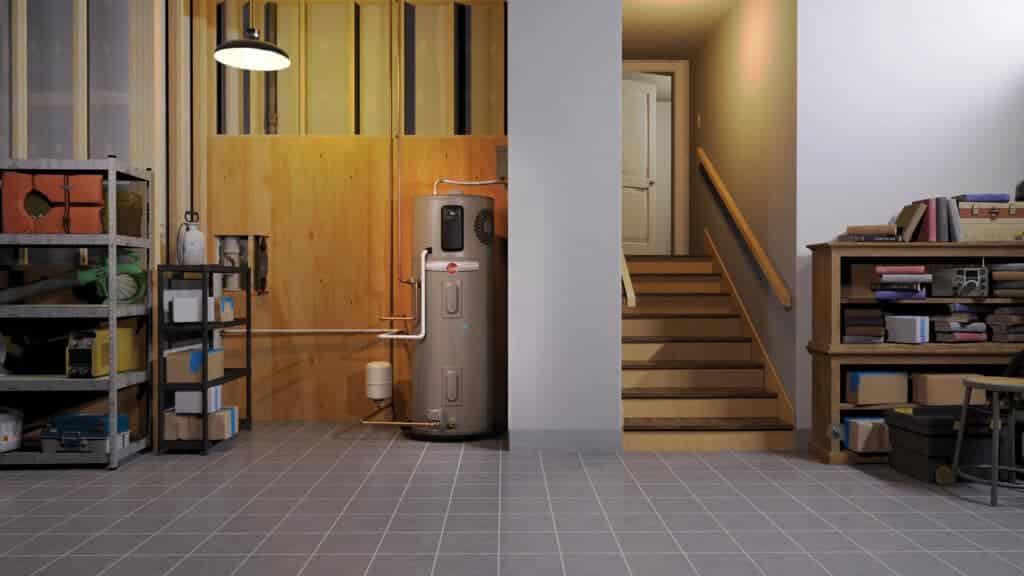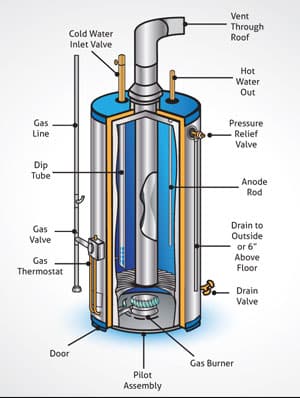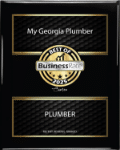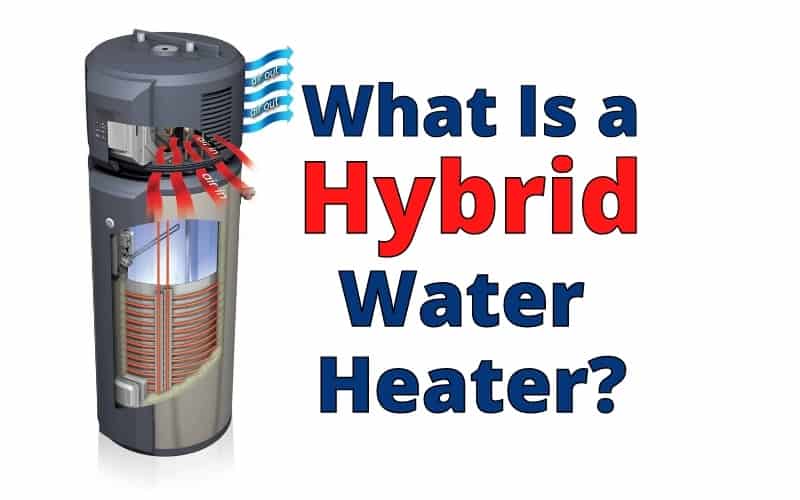
If you’re in the market for a new water heater, you may have come across the term “hybrid water heater.” But what exactly is it, and how does it work? In this blog post, we’ll break down the basics of hybrid water heaters, their benefits, and considerations for installation.
What Is A Hybrid Water Heater?
The term ‘hybrid’ might imply a combination of gas and battery-powered heating, but that’s not the case. A hybrid water heater is a fusion of tankless and traditional tank water heating technologies. It features a reservoir to store water, but it doesn’t run constantly. Instead, these heaters operate by extracting heat from the surrounding air and using it to warm up the stored water.
How Does A Hybrid Water Heater Work?
A hybrid water heater, often referred to as a ‘heat pump water heater,’ utilizes the heat from the outside air, much like a regular heat pump. The device draws in air, passing it over an evaporator coil filled with refrigerant. This coil absorbs heat from the air, and a heat exchanger transfers that heat to the water in the tank, providing you with hot water.
You can even opt for an air-source heat pump system that combines space heating and cooling with water heating, making it an efficient choice.
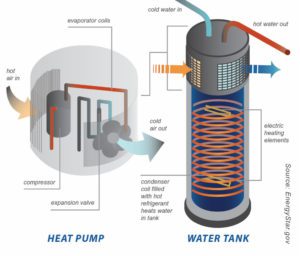
Differences Between Hybrid and Traditional Water Heaters
Traditional water heaters heat water from the bottom, causing heat to rise through the tank. While this method warms the water, a significant amount of heat is lost through the top of the device. On the other hand, tankless water heaters also heat from the bottom, but they lack a reservoir and deliver hot water through copper pipes.
Hybrid water heaters, similar to tankless ones, do not run continuously. However, they feature a tank that can store heated water for household use. The key distinction is that hybrid models absorb heat from the air and transfer it to the water, increasing efficiency.
Hybrid Water Heater Installation
When installing a hybrid water heater, consider the following:
- Ensure the installation location maintains temperatures between 40°F and 90°F year-round.
- Allow for at least 1,000 cubic feet of air space around the heater, with sufficient height.
- Accommodate a condensate drain or pump.
- Choose a plumber experienced with hybrid water heaters, as this technology is still relatively rare in the market.
- Opt for a unit with a slightly larger water tank than typically recommended for your household to avoid using the less efficient auxiliary heat mode.
- Select a hybrid water heater with a smart thermostat for energy savings and consistent hot water availability.
- Consider installing the heater in a room with excess heat, like a furnace room, to further enhance efficiency.
Hybrid Water Heater Pros and Cons
Pros:
Energy Efficiency: Hybrid water heaters are approximately four times more efficient than traditional ones, reducing energy costs.
Environmental-Friendly: They have energy-efficient compressors that lower your home’s carbon footprint.
Incentives: Governments and utility companies often offer incentives, such as rebates and tax credits, for adopting this technology.
Cons:
Space Requirement: Hybrid water heaters have a tank, making them unsuitable for homes with limited space.
Climate Dependency: They operate best in mild climates, as they rely on warm outside air.
Electricity Dependency: Homes plumbed for gas appliances may require complex retrofits for installation.
Higher Initial Cost: Hybrid water heaters are pricier upfront, costing around $2,500 or more, with additional installation expenses.
Do Hybrid Water Heaters Run Out of Hot Water?
Unlike tankless water heaters, hybrid models feature a water reservoir, ensuring an adequate supply of hot water under normal circumstances. They also come with electric heating elements for high-demand periods, temporarily switching to auxiliary heat mode when necessary.
How Long Do Hybrid Water Heaters Last?
Hybrid water heaters offer a longer lifespan of 13 to 15 years, compared to 8 to 12 years for traditional electric water heaters. This longevity, coupled with energy savings, makes them a wise investment.
Do Hybrid Water Heaters Work in Winter?
Yes, hybrid water heaters can operate in cold weather, thanks to their electric heating elements. To optimize performance, place the heater in an unconditioned or semi-conditioned space where temperatures remain above 50°F year-round. Consider models meeting Northern Climate Efficiency Specifications for better cold-weather efficiency.
How Noisy Are Hybrid Water Heaters?
Hybrid water heaters generate noise levels between 40 and 80 decibels, with most units falling in the 50-55 decibel range. This noise level is comparable to typical household sounds and should not be bothersome. If noise is a concern, consider installing the heater in an acoustically isolated location.
Is It Worth Getting A Hybrid Water Heater?
Hybrid water heaters are an excellent choice for all-electric homes with sufficient space and mild climates. While the initial cost may be higher, government incentives and utility savings over the unit’s longer lifespan make them a cost-effective and environmentally friendly investment.
Ready to make the switch to a hybrid water heater? Contact My Georgia Plumber at 770-592-0081 to explore your options and schedule an installation. Enjoy energy savings, hot water reliability, and a reduced carbon footprint with this innovative technology. Make the smart choice for your home today!


